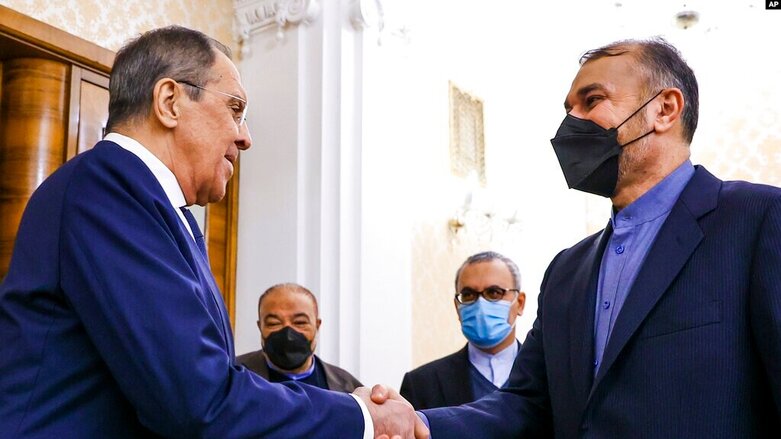Russian Foreign Minister on two-day visit to Iran

WASHINGTON DC (Kurdistan 24) – Russian Foreign Minister Sergei Lavrov arrived in Iran on Wednesday for two days of meetings, including with Iranian President Ebrahim Raisi and Foreign Minister Hossein Amir Abdollahian.
Lavrov's visit to Tehran follows escalating condemnation of Russia from much of the world for its assault on Ukraine.
Indeed, as the European Union's (EU) Foreign Policy Chief, Josep Borrell, stated last week, Russia's "war of aggression against Ukraine puts the world in danger of a famine affecting hundreds of millions of people."
Read More: EU denounces Russian' war crimes' as tensions mount
On Wednesday, as Iran's state-run media reported, Lavrov met with Raisi, but it provided no details. Lavrov is to meet with Abdollahian on Thursday.
Iranian Nuclear Advances
The two Foreign Ministers will discuss the 2015 Iranian nuclear deal, formally known as the Joint Comprehensive Plan of Action (JCPOA), which former President Donald Trump left in 2018, according to Russian media reports.
Negotiations on the JCPOA have been stalled since March when Iran introduced a new condition for renewing the accord. It demanded that Washington remove Iran's Islamic Revolutionary Guard Corps (IRGC) from the US list of terrorist organizations.
The Biden administration refused to do so, and no further progress has been made. In the meantime, Iran has made significant progress on its nuclear weapons program, as State Department Spokesperson Ned Price explained on Tuesday.
Iran has restricted international inspectors' access, and its nuclear program, as Price explained, "has now far exceeded the limits that the JCPOA imposed."
Price cited two examples: Iran "is spinning cascades of advanced centrifuges that are not allowed" under the JCPOA, and its "fissile material breakout time had been dramatically reduced from about a year" to "what can now be measured in weeks or even less."
Nonetheless, as Price affirmed, the US remains ready to renew the JCPOA because "if Iran were to fully implement," the agreement, it would resolve many problems, including the nuclear issues he cited.
Other Threats Posed by Iran
Price also noted, however, the other threats that Iran poses to the US and its allies, including "its ballistic missile program; Its support for regional proxies; [and] its support for terrorist groups."
US President Joe Biden is scheduled to visit the Middle East next month. Some significant part of that trip will deal with Iran, including his stops in Israel and in Jeddah, Saudi Arabia, where he will meet with the leadership of the GCC + 3 (Bahrain, Egypt, Iraq, Jordan, Kuwait, Oman, Qatar, Saudi Arabia, and the United Arab Emirates).
The Kurdish leadership may be included in the Iraqi delegation at the summit. Asked about that possibility, the White House said it would be up to the Iraqi government, although it also affirmed the value that it places on Washington's ties to the Kurdistan Region.
Read More: White House: 'Committed to our long-standing partnership with the Kurdistan Region'
In addition, Russian Foreign Ministry Spokesperson Maria Zakharova had earlier said that the two Foreign Ministers would also discuss Ukraine, Syria, Afghanistan, and Yemen. The Iranian media has stressed that the visit will help boost bilateral cooperation.
Russia will be looking for Iranian support on Ukraine, while Iran will be hoping for Russian support in Yemen. In Syria, both countries seek to restore the authority of the Damascus regime over the entire country.
